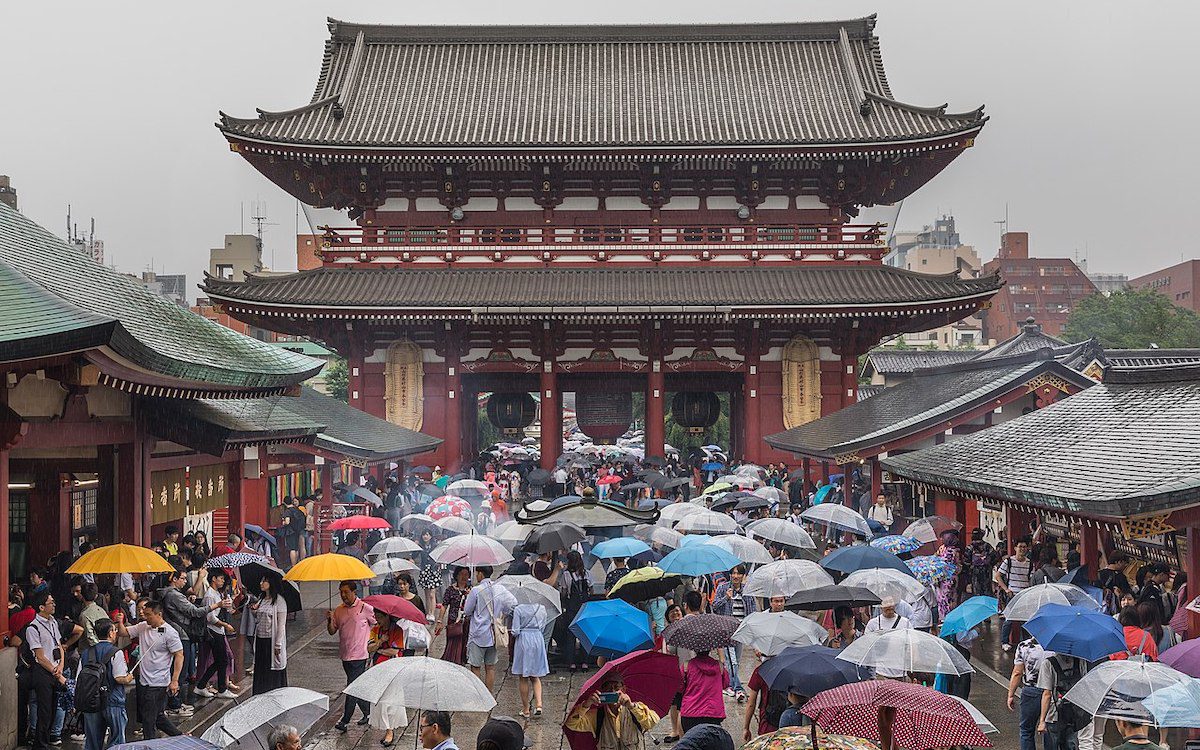Last updated on September 5th, 2024
Featured image: With some consideration, we can all work on being better travellers and not contribute to overtourism | Photo by drazenphoto on Envato
Six simple ways to be a good traveller
by Kathy Buckworth
Tourists being sprayed with water guns while dining in Barcelona. Locals marching with “Tourist Go Home” signs in Mallorca. Japan’s Mount Fuji imposing a tourism fee in an effort to discourage some visitors. These are just a handful of headlines appearing more frequently, as overtourism incidents seem to be getting out of control around the globe, particularly in Europe and Japan.
What’s changed from destinations actively courting tourists, to now, where we are witnessing cities and entire countries pushing tourists away? For many countries, risking the reduction of tourism dollars is a vital part of their economy.
There are a few forces at play. Pent-up travel demand from the lockdowns during the pandemic is still affecting the travel market. Budget airlines have made expensive and distant locations easier and cheaper to reach. This, combined with the ability of social media to spread the word about an ‘unmissable’ place or experience, can cause a virtual and real landslide of interest in an area not prepared to accept hordes of people. The result can be the deterioration of the natural environment, destruction of ancient landmarks and lowering the standard of living for people in those localities.
Get stories like this delivered directly to your inbox – join the mailing list here!
What is overtourism?
Let’s step back a minute. What exactly is overtourism?
Overtourism is a term used to describe the phenomenon which occurs when a destination becomes so overcrowded that locals can’t go about with their normal day-to-day lives due to the disruption caused by visitors. The increase in short-term rentals (Airbnb etc.) can make the cost to live in the city untenable for those who live and need to work there. It also speaks to the destruction of natural and ancient landmarks resulting from thousands of tourists climbing, touching or wilfully destroying items that have been around for centuries, rendering them less valuable or even visitable for future generations.
Mabrian (a global travel intelligence agency) recently released a white paper on how destinations can help to avoid and control overtourism. But this is just the beginning of a change that needs to take place to protect people and the earth.
Read More: 30 Less-Travelled Places for Women to Visit

“Refugees welcome, tourists go home” seen in Crete/ Photo by Tomisti, CC BY-SA 4.0, via Wikimedia Commons
What can we do to avoid overtourism?
So what can we as travellers do to avoid adding to the problems while trying to assist those who need our help in maintaining some level of tourism in order to sustain a local economy?
As tourists, certainly we can look for ways to satisfy our own travel curiosities by straying off the beaten path and forging our own itineraries.
1. Travel off-season
Obvious advice, but harder to follow now that climate change has affected temperatures and weather conditions across the globe. Do your research on current conditions and try to avoid the usual holiday break times and traditional peak travel months. Amalfi Coast in February? Why not? It might only be 7 degrees Celsius but that’s likely to be 20 degrees higher than most of Canada, and perfect walking around weather. Find lots of ideas for off-season travel here.
2. Avoid the short-term rental market
Where possible, look for locally owned apartments and hotels while staying in town. Research accommodations outside of busy cities, particularly if you have access to a private automobile, group hire, or other means of transportation not easily afforded or accessed by locals who need to be in the city.
Find a locally owned business in our Places to Stay Directory here.
3. Do your research
Research destinations that are actively marketing and promoting visits and stay away from those who are in recovery mode.
Many Caribbean islands were devasted by Hurricane Beryl, but quite a few of them had either minimal damage or no damage at all, and they need their tourism dollars to start flowing back in. In Canada, the wildfires in Alberta and parts of B.C. are devastating for those areas, but the rest of the country is welcoming visitors with open arms. There is a feeling that ‘all of Canada is on fire’, and by sharing stories and facts about the unaffected provinces, we can help to increase numbers from our number one tourist market, the U.S.
4. Support the local economy
Support the local economy wherever you travel. Eat at locally owned restaurants, shop at local shops for souvenirs and use local tour guides. I visited Rome in June and booked a semi-private tour of the Colosseum with local tour company Liv Tours. Well worth the money to avoid and bypass most of the crowds. As well, look for ways to contribute and volunteer at local charities.
Read More: Seven Ways Women Can Travel Sustainably

Areas of Japan have been struggling with overtourism in recent years / Photo by Basile Morin, CC BY-SA 4.0, via Wikimedia Commons
5. Avoid over-sharing on social media
While it’s almost irresistible to share our travel experiences on social media, we should try to limit the exposure of a destination already struggling with overtourism, or at a minimum address the overtourism in your posts as a warning to others.
6. Be a good tourist
It starts with being respectful of cultures and includes not leaving a place in worse shape than when you arrived. Desecration of monuments, natural landmarks and disregarding religious and moral beliefs only add to the angry response from locals.
Above all, keep your eyes on the news and local headlines to not only avoid issues of personal safety in locations where tourists are not welcome, but also to honour the requests of those who feel your visit will do more harm than good. And as always, check your source and make sure you are reading reliable reports from credible news sources, not social media influencers.
More on Sustainable Travel
Swimming with Whale Sharks in Mexico’s Galapagos: Adventures in La Paz, Baja California Sur
A once-in-a-lifetime experience swimming with whale sharks in La Paz, Mexico, reminds us to trust ourselves and the universe.
15 Stunning Train Trips to Inspire Your Travels in 2025
These train trips across Europe, Asia, Africa and Canada remind us that the journey can be more memorable than the destination.
Travel with Purpose: Volunteering at a Turtle Conservation Project in Costa Rica Makes My Dream Real
As a volunteer on a turtle conservation project in Costa Rica with Conservation VIP, I fulfilled a long-held dream to help baby turtles.








Tourism = privilege.
Avoid sticking out like a sore thumb. Speaking loudly, constantly comparing things with ” back home” in a loud conversation, making derogatory comments. I am perfectly bilingual but so often I have kept away from groups of English speakers so obviously North Americans……while at the same time offering to help individuals looking at a map, or trying to decipher a menu, or wondering aloud what is this or that thing on a market. I guess it might be a group thing. Done the same keeping away from groups of loud French speakers too in some destinations (what to say to French tourists complaining of too much rice in their meals in Vietnam……).